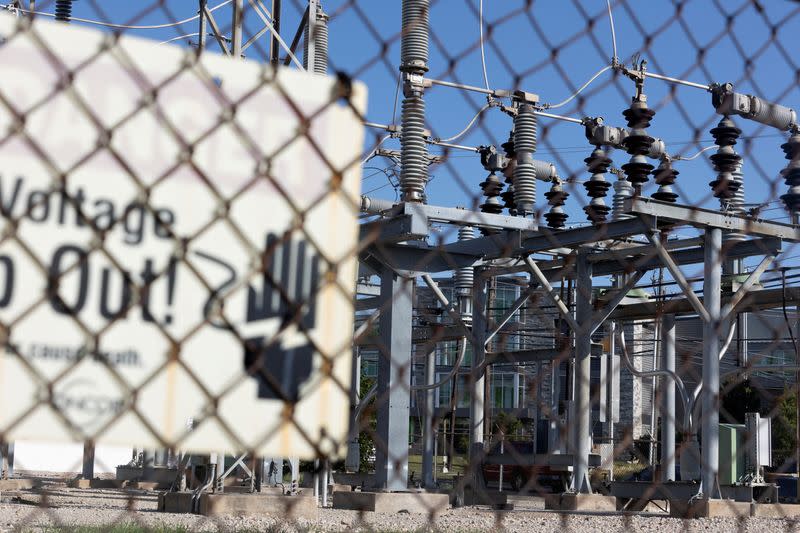Data centers, EVs to significantly boost US power load by 2030, consultancy says

NEW YORK (Reuters) - Data centers and electric vehicles are expected to ramp up U.S. power demand by about 300 terawatt-hours (TWh), equivalent to the electricity consumed annually by Turkey, by the end of the decade, consultancy Rystad Energy said on Tuesday.
WHY IT'S IMPORTANT
The country's rising power load could stress the U.S. electrical grid, which has become increasingly vulnerable to shortfalls.
Rystad expects, however, solar capacity to increase by 237 gigawatts (GW) between 2023 and 2030 and wind capacity to grow by 78 GW, which the firm said should be enough to meet increased U.S. power demand from data centers and EVs.
CONTEXT
U.S. electricity demand had been flat at around 4,000 terawatt-hours since around 2010, Rystad said.
Now electricity demand is accelerating from the rapid build-out of data centers needed to develop generative artificial intelligence and from government and corporate climate pledges that hinge on electrifying industries such as transportation.
KEY QUOTE
"This growth is a race against time to expand power generation without overwhelming electricity systems to the point of stress," said Rystad analyst Surya Hendry. "If you envision cleaner roads and sustainable AI for the future, renewable energy is the key to meeting this demand and providing the scalability needed for U.S. power systems to endure."
BY THE NUMBERS
On top of power consumption by data centers and EVs, Rystad projects the addition of 175 TWh of U.S. power demand by 2030 from residential, commercial and industrial sectors, growing the country's needs to nearly 4,500 TWh.
(Reporting by Laila Kearney; Editing by Rod Nickel)

 Yahoo Finance
Yahoo Finance 